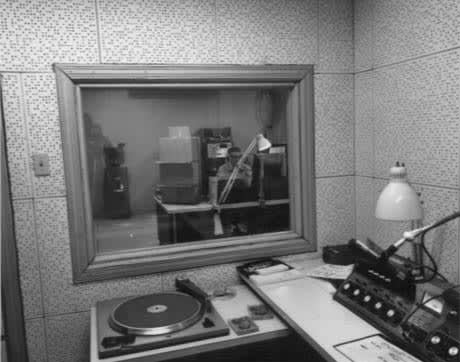A new Canadian policy announced Thursday (July 22) should put campus and community radio stations on more solid footing in a time where the future of alternative radio is uncertain. The Canadian Radio-television and Telecommunications Commission (CRTC) has introduced additional funding to the tune of over $700,000 for more than 140 community and campus radio stations.
"Community and campus radio stations serve a distinct need within the broadcasting system," said Michel Arpin, the CRTC's vice-chairman of broadcasting, in a press release. "In the years to come, these stations will have access to predictable funding so that they may continue to offer local information, give exposure to emerging Canadian artists and provide opportunities for volunteers to participate in the broadcasting system."
The additional money will come from the Community Radio Fund of Canada (CRFC). Started in 2007, the CRFC is a not-for-profit organization that supports the development of non-commercial, community-based broadcasters.
Yesterday's announcement has some station managers wondering how the money will be divvied amongst the 140 CRTC members in Canada.
In an interview with Exclaim!, Brad Edwards, station supervisor at CKMO Village 900 radio at Camosun College in Victoria, BC, says, "It's still unclear exactly how the funding will be administered, and they are still unclear as to how that is going to be dispersed among the members. The announcement seems pretty ambiguous, whether the funding is related to the revenue of the station, or if it will be equally dispersed across the board."
If each member station gets the same amount of money, it's roughly $5,000 per station in additional funding.
According to the CRTC press release, the funds will be supplied via commercial radio stations through a reallocation of contributions they already make each year towards the development of Canadian radio content. The new policy will also allow campus and community radio more flexibility with their limits on advertising, setting weekly limits rather than daily.
Edwards, who has been following the new policy's development for some time, since the CRTC framework is only reviewed once every seven years, says a big change for the better is the loosening of the advertising limits.
"The advertisement adjustment is huge, especially for stations who want to cluster advertising during the week. I think some stations will be able to really take advantage of that," says Edwards.
Additionally, the new policy will simplify its licensing standards to "harmonize as much as possible the regulations for community and campus radio stations," according to the press release.
To see the new policy, go here and to see how it all started go here.
"Community and campus radio stations serve a distinct need within the broadcasting system," said Michel Arpin, the CRTC's vice-chairman of broadcasting, in a press release. "In the years to come, these stations will have access to predictable funding so that they may continue to offer local information, give exposure to emerging Canadian artists and provide opportunities for volunteers to participate in the broadcasting system."
The additional money will come from the Community Radio Fund of Canada (CRFC). Started in 2007, the CRFC is a not-for-profit organization that supports the development of non-commercial, community-based broadcasters.
Yesterday's announcement has some station managers wondering how the money will be divvied amongst the 140 CRTC members in Canada.
In an interview with Exclaim!, Brad Edwards, station supervisor at CKMO Village 900 radio at Camosun College in Victoria, BC, says, "It's still unclear exactly how the funding will be administered, and they are still unclear as to how that is going to be dispersed among the members. The announcement seems pretty ambiguous, whether the funding is related to the revenue of the station, or if it will be equally dispersed across the board."
If each member station gets the same amount of money, it's roughly $5,000 per station in additional funding.
According to the CRTC press release, the funds will be supplied via commercial radio stations through a reallocation of contributions they already make each year towards the development of Canadian radio content. The new policy will also allow campus and community radio more flexibility with their limits on advertising, setting weekly limits rather than daily.
Edwards, who has been following the new policy's development for some time, since the CRTC framework is only reviewed once every seven years, says a big change for the better is the loosening of the advertising limits.
"The advertisement adjustment is huge, especially for stations who want to cluster advertising during the week. I think some stations will be able to really take advantage of that," says Edwards.
Additionally, the new policy will simplify its licensing standards to "harmonize as much as possible the regulations for community and campus radio stations," according to the press release.
To see the new policy, go here and to see how it all started go here.




